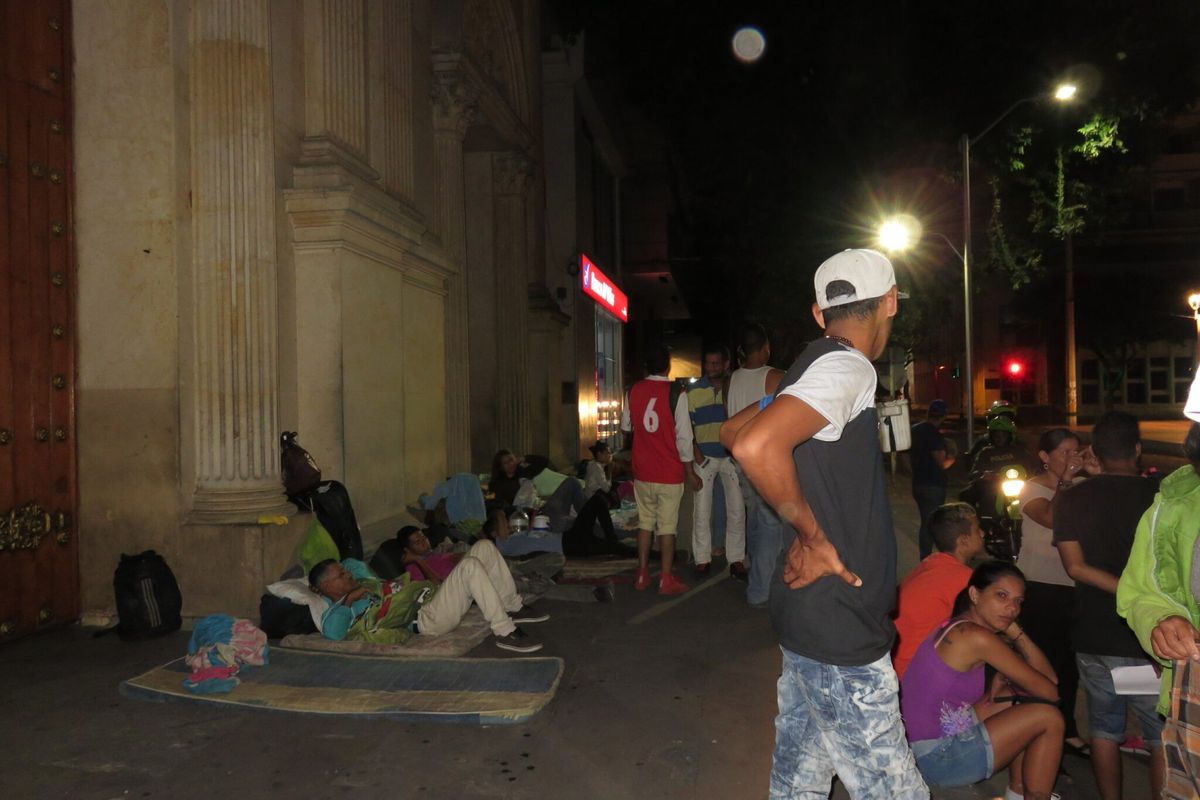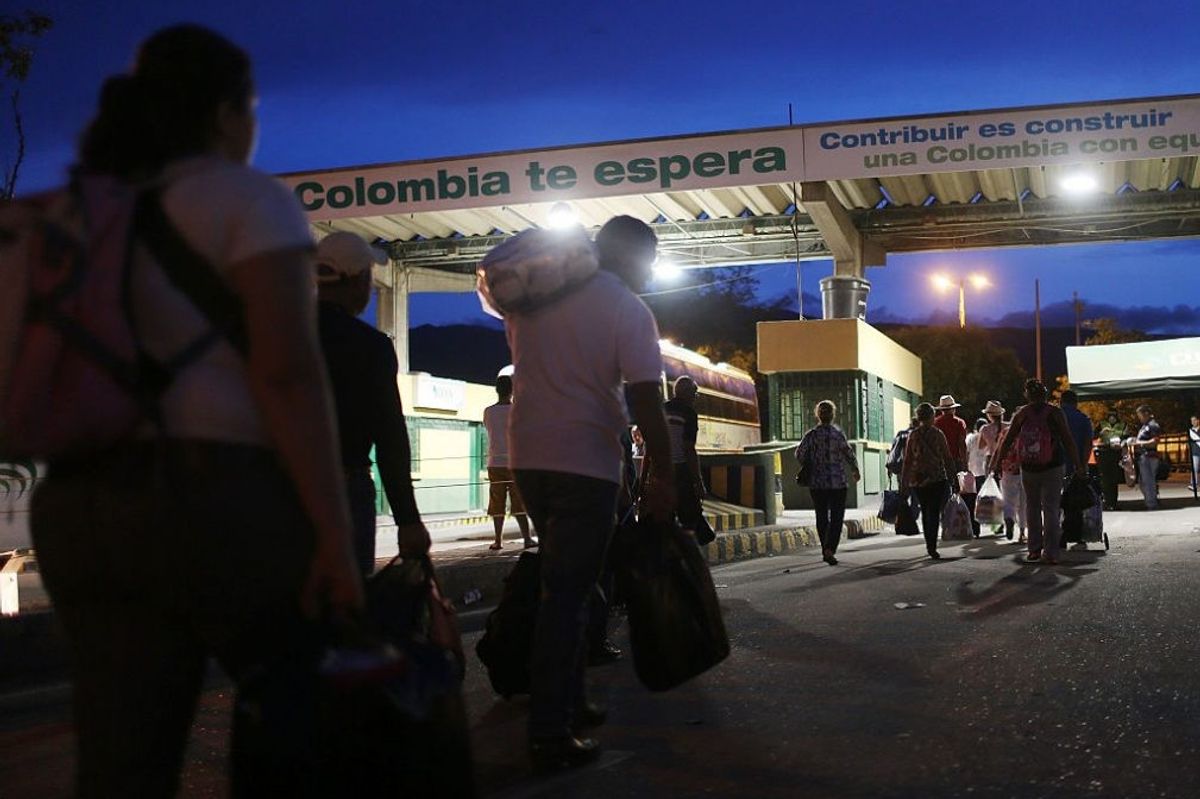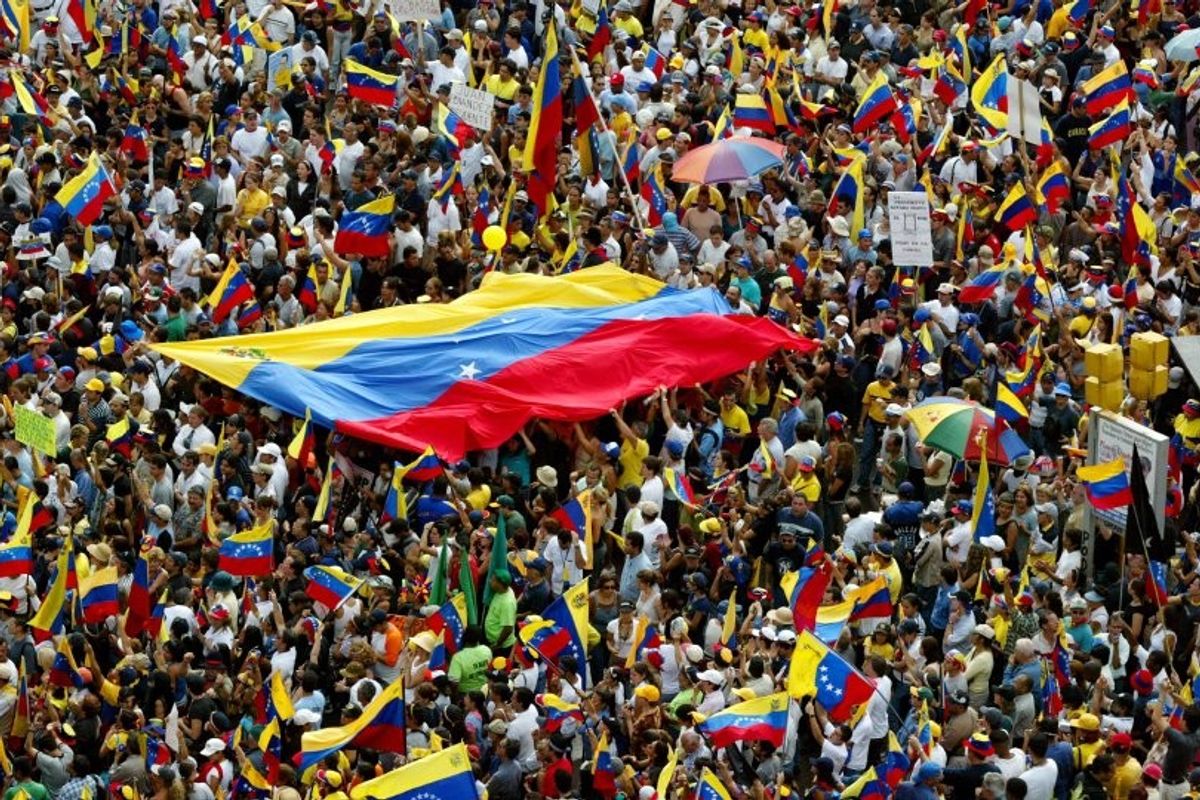The government of president Juan Manuel Santos and the FARC (Revolutionary Armed Forces of Colombia) have been negotiating in Havana, Cuba for the past four years to put an end to an internal conflict that has ravaged the country since the 1960s. Santos has confirmed that the signing of a final agreement is imminent, but more than two-thirds of Colombians are pessimistic about its chances of success, according to recent polls.
Conflictive issues in the peace process
The peace talks have been divided on five key issues: agrarian development; drug-trafficking (guerrilla groups get most of their financing from cocaine); transitional justice; political participation of FARC members; and demobilization and surrender of weapons by the guerrillas (the only topic that is still being negotiated).
The more contested issue in Colombian public opinion has been the mechanism for transitional justice. Under this framework, FARC leaders who admit their crimes will serve alternative penalties—community service and certain restrictions on movement—instead of actual prison terms. For many, including popular former President Álvaro Uribe, leader of the opposition to the peace talks, this equals impunity for the guerrilla’s egregious crimes.
Secondly, the guerrillas are hugely unpopular in Colombia (their negative image stands at 97 percent or higher), but the agreement would allow their leaders to run for elected office. For many, allowing those who for decades have fought the state, attacked and kidnapped civilians, and led drug-trafficking in Colombia to enter democratic institutions is unacceptable, particularly if they did not serve prison time before.
On the other hand, defenders of the peace process note that all peace agreements involve mutual concessions. Even if the current deal is far from perfect, they believe that the objective of finally reaching peace is worth making sacrifices. They point out that FARC has been weakened, but in no way defeated, so a failure to reach a deal now will likely extend the suffering of the Colombian people for many years and waste a historic opportunity to end the longest-running conflict in the Americas.
Three challenges for peace
The next couple of months will decide the fate of the peace process, and whether Colombia can begin to overcome decades of armed conflict. Three fundamental obstacles remain:
1)Finalizing the negotiations: This should be the easiest part, given that most has been agreed upon. But disagreements on the characteristics of the demobilization of the guerrillas remain, and an initial deadline of March 23 will likely be postponed. It is clear that Santos has bet his entire political capital on reaching a deal, and the FARC are likely using this as leverage in the negotiation table.
2) Getting the deal approved in a referendum: Santos has promised that the Colombian people will have the final say on the peace deal. However, skepticism about whether FARC will abide by its promise to demobilize and abandon drug-trafficking, combined with the growing unpopularity of the Santos administration (largely because of economic stagnation) means that achieving a popular majority for “Yes” is far from certain.
3) Implementing the deal: Even if an agreement is approved in a referendum, it will not instantly mean real peace on the ground. Criminals involved in drug-trafficking (known as bacrim) could rapidly fill any terrain vacated by FARC and even recruit demobilized guerrilla members. Further, the second largest armed group in the country, the ELN (National Liberation Army), has not even begun negotiations with the government. Therefore, drug-trafficking and violence will still be a severe problem for Colombia, regardless of the peace deal.
Despite these challenges, there are some reasons for optimism. Faced with a choice between a final –if imperfect—peace deal and the continuation of the conflict, many Colombians will likely support the agreement despite their doubts. For this to happen, Santos will need to convince them that a vote for the peace deal is not a vote of confidence in his government but for the nation’s well-being.
The hardest part, however, will come after the referendum. It will take a long time to promote truth and reconciliation, and overcome decades of violence. It will also require a massive investment to expand public services and rebuild affected areas. The support of the international community will be critical: the United States has already announced a new aid package for the post-conflict named, “Paz Colombia,” and the UN Security Council has approved the creation of a mission to oversee the demobilization of guerrilla members.
The ultimate effort, however, will have to be made by Colombians themselves. For that to happen, they will need to believe that, this time, peace is possible.
Bruno Binetti is a research associate with the office of the president at the Inter-American Dialogue. He was previously a research assistant at the Woodrow Wilson Center for International Scholars and has also worked in the Argentinian Congress. A native of Buenos Aires, Binetti has taught courses at Tocuato Di Tella University and the Catholic University of Argentina, and is currently a Fulbright scholar and an MA candidate in international affairs and development at the George Washington University’s Elliott School of International Affairs.










